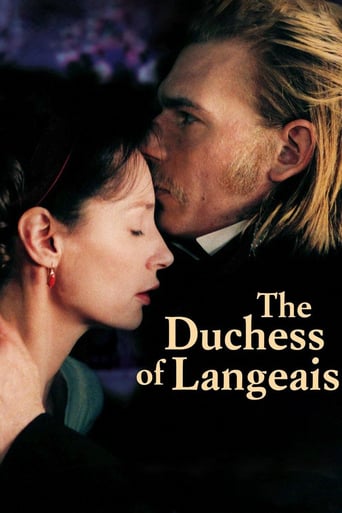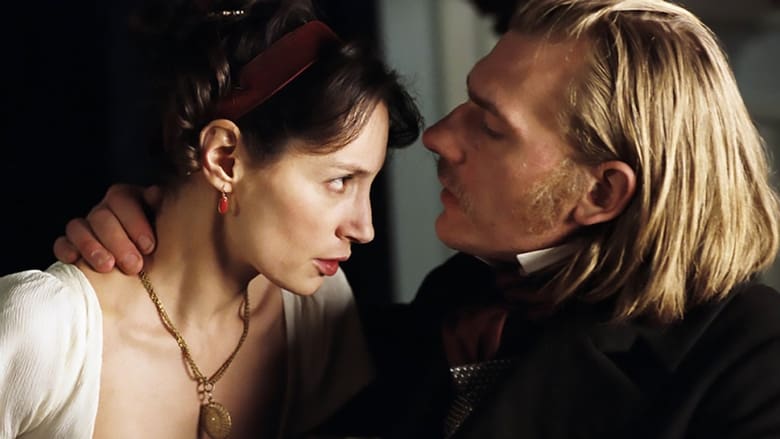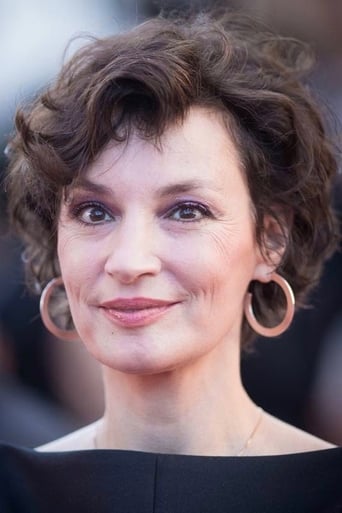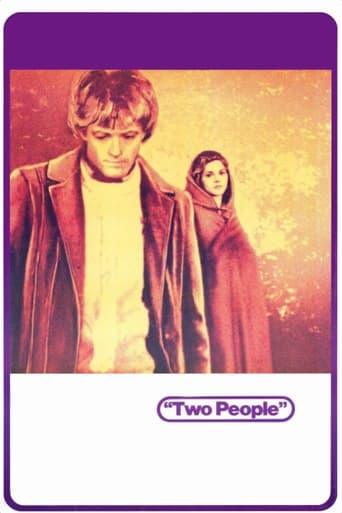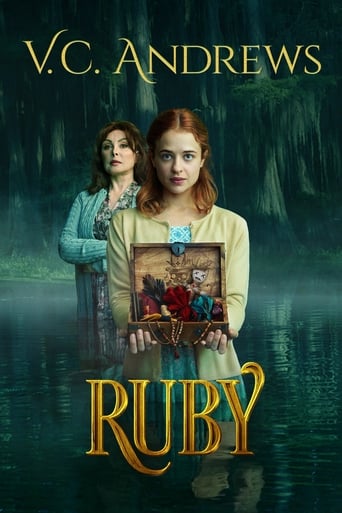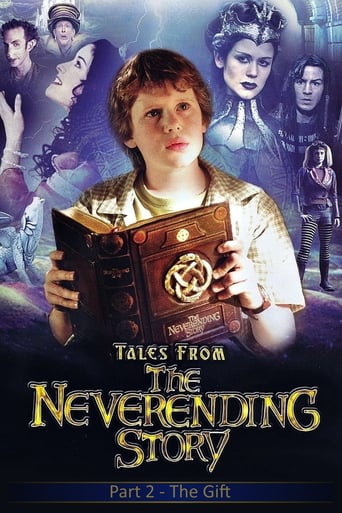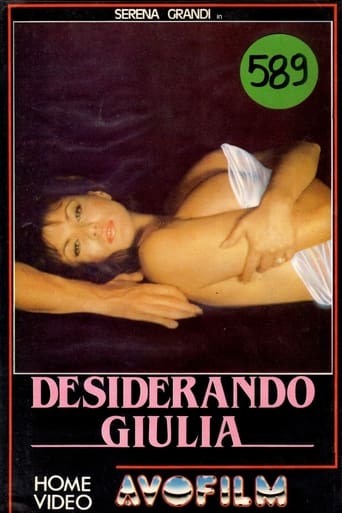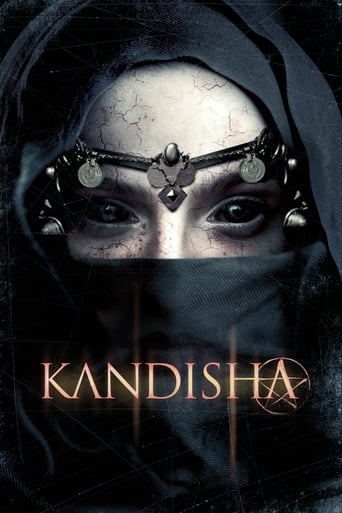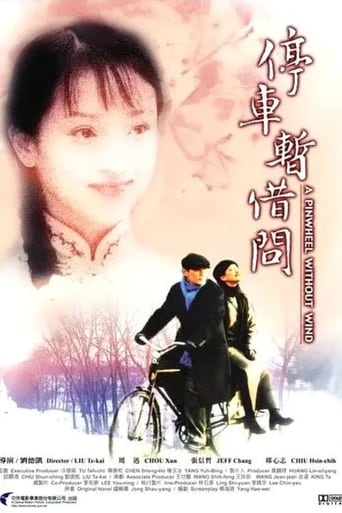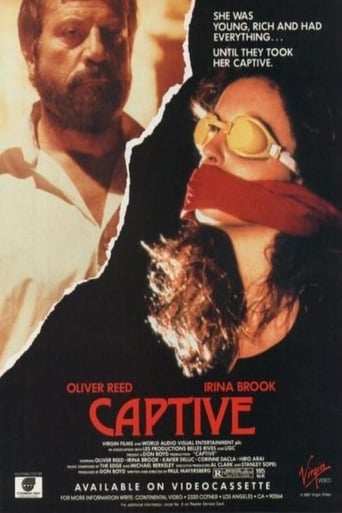The Duchess of Langeais (2007)
General Montriveau, having returned from the Napoleonic Wars in despair, quickly becomes enamored with Duchess Langeais. Across a series of nocturnal visitations, the Duchess mercilessly toys with her hot-tempered suitor, as the machinations of a shadowy conspiracy unfold in the background.
Watch Trailer
Cast
Similar titles
Reviews
the audience applauded
Wow! What a bizarre film! Unfortunately the few funny moments there were were quite overshadowed by it's completely weird and random vibe throughout.
Let me be very fair here, this is not the best movie in my opinion. But, this movie is fun, it has purpose and is very enjoyable to watch.
All of these films share one commonality, that being a kind of emotional center that humanizes a cast of monsters.
Honoré De Balzac's novel 'La Duchesse Du Langeais' has been transformed by screenwriter Pascal Bonitzer for the screen as 'Ne Touchez Pas a la Hache' and the result is a mixture of proscenium stage pictures, and scenes separated by written dialog that merely lets the viewer know such unnecessary details such as that fact that time has passed, and well over two hours of an uninvolved courtship between a sensualist and a coquette. While it is a pleasure to remember the times of Balzac and his way with lusty themes, watching this film version can be tedious - at best. Fans of director Jacques Rivette will find much to enjoy in this adaptation: the pacing of the film feels important to his concept of the development of the story - the stifling boredom of the evenings of balls in Paris and the isolation of the soldiers' lives, deprived of the companionship of lovely ladies. He has cast Jeanne Balibar as the title character Antoinette De Langeais , a married lady of means with a penchant for flirting and coquettish behavior with important men, and Guillaume Depardieu as General Armand De Montriveau, a war hero who lost his leg and returns to Paris vulnerable for love, namely in the instant attraction to Antoinette. The tale is one of a game of the General's passionate love and the duchess' toying with his advances until a climax is reached which changes the approach of each character with rather disastrous consequences for both. As a period piece the film works well: the costumes and settings are splendid and the scenes in the endless ballrooms are full of grace and lovely music. But the flow of the encounters between Antoinette and Armand are an interminable series of momentary repetitious encounters with a sound track that seems bent on capturing the opening and closing of doors and the loud pacing of the crippled general as he enters and leaves the naughty lady's chamber. There is little to draw us into caring for the characters and after the first hour and a half of the film the courtship begs our indulgence. In French with English subtitles. Definitely recommended for fans of Jacques Rivette's films or Balzac's stories, but a 'long song' for casual viewers. Grady Harp
So I went back into a book I was reading a few weeks ago, The Dreams of Interpretation: A Century Down the Royal Road, finding this perfect quote from the editors describing the illumination of the space between Pascal (19th Century) and Freud (20th) which the movie by Jacques Rivette that I saw tonight so monumentally demonstrated (and which is so fundamental to what I am experiencing myslef): "If, in the century in which Freud's own life began, it was still necessary to secure a stronghold as Pascal's Wager thus had to be transformed, honed into the sharpest superegoic injunction imaginable - "believe" - as the only apparent means to this end; if thus it was still apparently necessary to submit to the Father at every instant, to remain standing awake all night to assure one's salvation - if this is the way the post-Copernican theologians would have it, Freud, nonetheless, and lucky for us, offers a new turn, something quite different, in the necessity of thought and practice." Yup. As powerful a film as I've seen in ages. Those who hate it loathe the cinema. Luckily for them it is dying.
I find it ironic that many reviewers walked out of this movie because, for me, the characters constantly walking on and off scene were what killed the movie for me. I dare someone to count the abrupt entrances/exits through darkened doorways. Ohhh, what do these darkened portals portend? NOTHING. They serve as clunky scene transitions AND the director felt these weren't clues enough because the story is also interrupted with narratives informing us that the next scene continues two weeks later, one month later, five years earlier, ad nauseum...A poor film must provide a written narrative to be understood; a good film will let the story speak for itself.
Jacques Rivette, the grand old late-bloomer of the French New Wave, is a sacred cow. You must either worship him or turn on him and shatter an idol. It's no use calling this new film "dull," though Armond White and Andrew Sarris have emphatically done so. That will make the cinephile fans call you stupid and impatient and without finesse or taste. It will only signal that you lacked patience. Had you endured the film's considerable longueurs with more fortitude, you would be proud and wear your multiple viewings as a banner of accomplishment, of authenticity.No, I would not want to fall into the obvious trap of calling this film "dull." But on the other hand, it's only jumping on a fashionable little bandwagon to call it a "masterpiece." It's more appropriate to describe it as a reexamination of history and culture--a film more to be studied than enjoyed. And for anybody, really, it does offer some pleasures. It's not hard to look at. Its authentic period interiors and rich costumes are beautiful and presented with an austerity than only enhances them. It has moments that bring Chereau's 'Gabrielle' to mind (though it's set later)--the recreation of a period that's so starkly emotional it almost becomes contemporary (because we subconsciously think of historical people, especially famous or rich ones, as lacking raw emotions). The crackly fires and creaky floors and flickering candles may seem clichés, but handled with a sure, unadorned European touch they seem fresh, like the Brechtian vérité of Versailles in Rossellini's stunning 1966 'La prise de pouvoir par Louis XIV.'Jeanne Balibar and Guillaume Depardieu, who play the sparring love-withholding lovers, the Duchesse Antoinette de Langeais and Colonel Armand Marquis de Montriveau, are not cool, and since they play with each other and never make love, it's all the more evident that neither of them has much presence on screen or chemistry with each other. Balibar is thin and long-necked enough to wear her Empire dresses well, but she's no beauty and has no spirit and alas, her voice is a bit whiny. Depardieu, the terribly overshadowed son of the famous father, as Armond White in an excellent if dismissive review writes is a "former dreamboat...hidden behind acne and unkempt facial hair." Supposedly playing the hero of a desert campaign, Depardieu actually limps from a car accident and despite a noble profile and good hair has a face that when seen dead-on seems to disintegrate as from depression or drug abuse or both. That may do for the shattered war hero look, but there isn't much about Guillaume that suggests officer material.These ill-fitted, unmagical actors are brought together to play two neurotic characters, who, in an unusually focused and formally scripted work for this director, seem like the characters in Catherine Breillat's 'The Last Mistress' (2007), trying to live the lives of eighteenth-century rakes but overcome by nineteenth-century romantic emotions, and in this case a kind of Victorian guilt alternative with the temptation to commit perversion. The colonel has the duchess kidnapped and threatens to brand her. Earlier she's said he's looking at her at a ball as if he had an ax in his hand; the French title is 'Ne touchez pas la hache,' "Don't touch the ax," referring to a superstition about the ax that killed Charles I of England.She welcomes being branded. So of course he has the hot iron taken away. Isn't this the essence of S&M--to provide the most exquisite torment by withholding torment? Armond White says "Rivette sticks to the melodrama of manners, as if observing a war of social proprieties. Each rendezvous--or missed meeting--of the would-be lovers becomes a game of one-upsmanship. These people are trapped in conventions that they adhere to more than anybody else. They're tragic 19th-century fools--figures from an unfamiliar age who test a modern audience's patience." They do that no doubt, but Rivette deliberately exaggerates the constricting conventions to go beyond naturalism or historical accuracy and make this almost a conceptual piece--and hence not really "Masterpiece Theater" at all (despite Nathan Lee) but something different and more intense and more like Gabrielle--but without Gabrielle's excitement.And without context. That excitement is partly achieved through great acting and much better casting (Isabelle Huppert and Pascal Greggory, who have a kind of high-octane negative chemistry), but also through a vivid conveyed sense of a surrounding society that is shocked, even as it looks the other way. In The Duchess of Langeais we see only a few relatives, soldiers, and pals, mere appendages, so that despite all the adherence to constricting conventions, the protagonists seem isolated, and free, living in their own invented hell. That's much more a modern idea. Beware a historical film that feels authentic; it's probably even more anachronistic than a conventional one. Despite the duchess' constant attendance at balls, and a couple of dance scenes with nice music, there's not enough sense of a larger society with rules.Though there are plenty of cards and letters (most of the latter unopened however) and a few moments of voice-over, this is one of those times where a film from a book (or in this case a Balzac novella) needs more verbiage to make sense out of what's going on. You can't say nothing happens--besides the kidnapping there's an attempt to storm a convent. But the story is all about withholding--and we need to know its inner repercussions. Despite Rivette's self control and ability to tease, this is a literary adaptation that doesn't quite work cinematically. The duchess's withholding is due to the fact that, though she is enamored of Armond, or of his love for her, she considers it undignified of her to become his mistress. We need to be told more about the rule book she's following; you can't have a real sense of passion till you know the rules are that it makes people want to break.FSLC Film Comment Selects Feb. 2008; IFC release.
